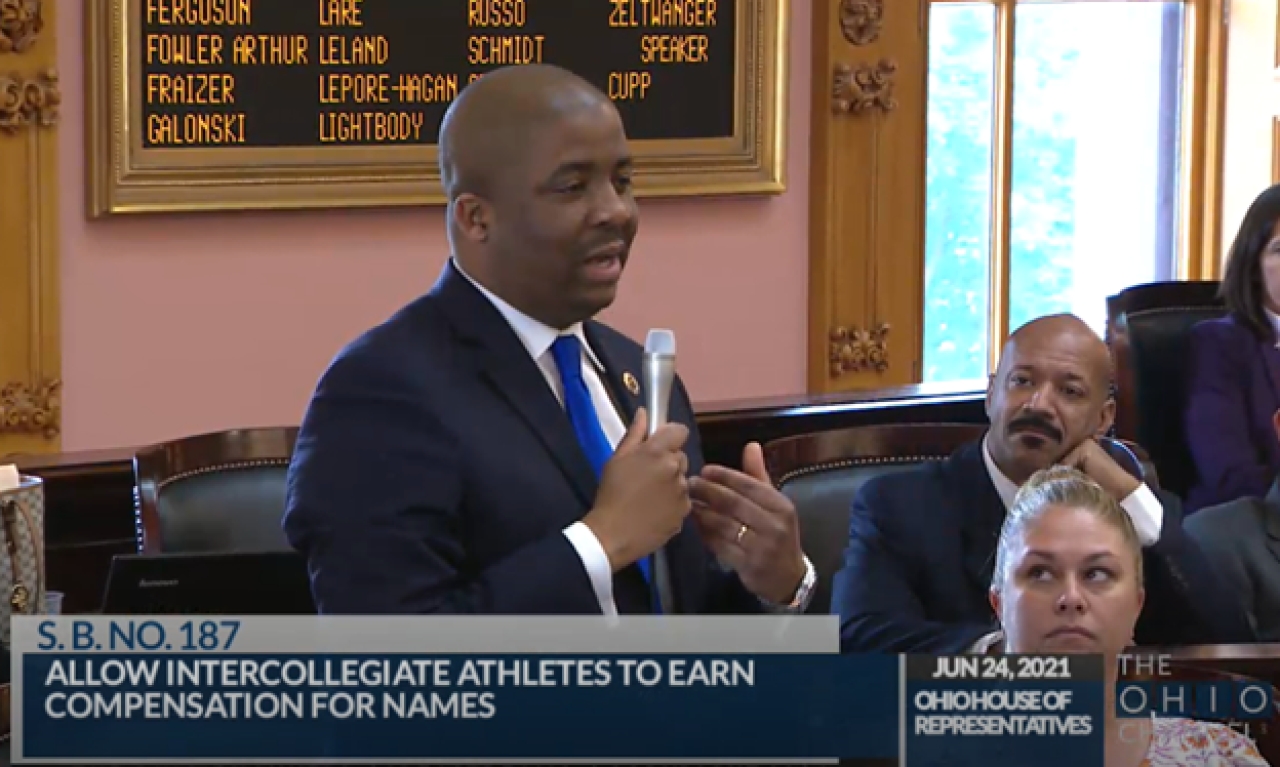Rep. Robinson statement on DeWine's executive order allowing student athletes to earn compensation for NIL

COLUMBUS— State Rep. Phil Robinson (D-Solon) today issued a statement after Gov. DeWine signed an executive order to allow any student athlete enrolled in Ohio colleges and universities to earn compensation from their name, image and likeness. The executive order bypassed Senate Bill (SB) 187, which House Republicans amended to effectively ban transgender student athletes from participating in high school and collegiate sports.
“I’ve been asked by some, ‘how would you feel if your daughter had to compete against a transgender athlete?’ As a father, I tell them that I don’t worry about that. I worry about my daughter looking at me one day and saying, ‘how can you tolerate making anyone in this state feel like they aren’t included, less than others, or not allowed to participate in fair and friendly sportsmanship?’ That is my real concern,” said Rep. Robinson. “Right is right, and wrong is wrong. We can’t tolerate our democratic process breaking down to rush harmful legislation impacting our children and LGBTQ rights.”
Provisions of the amendment in SB 187 are based on House Bill (HB) 61. The bill has received only two hearings in the House Primary & Secondary Education committee, with no opportunity for opponent testimony.
Rep. Robinson spoke on the House floor against the amendment last week with several other House Democrats. As the Ranking member of the House Primary & Secondary Education, Rep. Robinson voiced several concerns, including:
- HB 61 has not gone through the proper committee process with both proponent and opponent hearings and testimony, or a committee vote;
- The National Collegiate Athletic Association (NCAA), the Olympics, and the Ohio High School Athletics Association (OHSAA) already have guidelines and rules for transgender athletes that are working;
- In 6 years and over one million OHSAA athletes competing, there have been only 11 transgender student athletes and no Ohio student complaints brought to the committee’s attention;
- Similar legislation in other states are being blocked by courts on grounds of violation of federal law and equal rights protections;
- There will be a negative economic impact to the state, losing potentially millions of dollars from the NCAA leaving Ohio, ending investments and conferences over these policies. The Mid-American Conference (MAC) has said that passing this could mean Northeast Ohio alone could experience an estimated loss from 2022-2030 of $287 million to $422 million;
- Creates the impression of Ohio being an intolerant state, causing businesses and young people to leave or never consider moving to Ohio;
- The negative psychological impact these policies have on transgender youth, increasing likelihood of depression and suicide.
SB 187 now goes to the Senate for a concurrence vote to see if they accept the changes to the bill.







